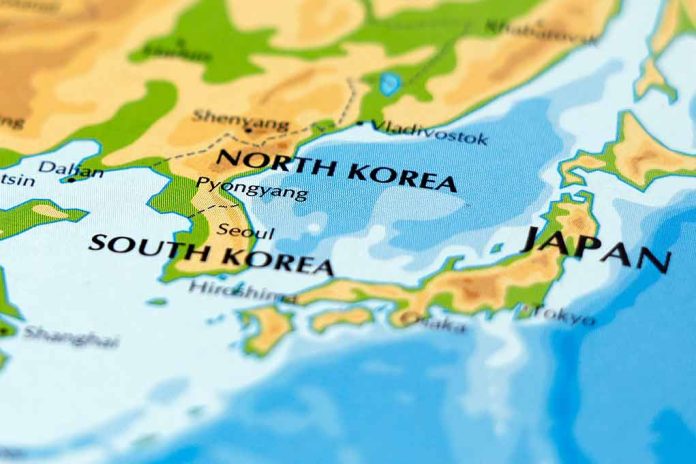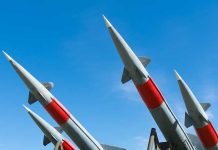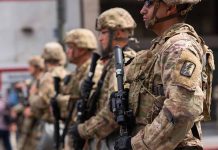
North Korea claims successful test of new hypersonic missile, raising concerns about regional stability and global security.
At a Glance
- North Korea tested a new hypersonic intermediate-range missile aimed at Pacific targets
- The missile reportedly traveled 1,500 kilometers and reached speeds 12 times the speed of sound
- South Korea disputes North Korea’s claims about the missile’s capabilities
- The test is seen as part of North Korea’s efforts to bolster its nuclear deterrence
- Concerns exist over potential military cooperation between North Korea and Russia
North Korea’s Bold Missile Test
North Korea has once again grabbed international attention by conducting a test of a new hypersonic intermediate-range missile. The launch, which occurred under the watchful eye of leader Kim Jong Un, marks a significant advancement in the country’s missile technology. According to North Korean state media, the missile traveled an impressive 1,500 kilometers and reached speeds 12 times that of sound, demonstrating its potential to strike targets in the Pacific region.
The test flight was detected by South Korean military officials, who reported that the missile flew approximately 1,100 kilometers before landing in waters between the Korean Peninsula and Japan. This discrepancy in distance has led to skepticism from South Korean authorities regarding North Korea’s claims about the missile’s capabilities.
North Korea confirms new hypersonic missile test
The DPRK said it successfully test-fired a new medium- and long-range hypersonic ballistic missile on January 6, the Korean Central News Agency reported.
Kim Jong-Un watched the test launch and said the new missile is capable of… pic.twitter.com/C4NR8PR2ww
— Indo-Pacific News – Geo-Politics & Defense (@IndoPac_Info) January 7, 2025
Implications for Regional Security
The development of hypersonic missile technology by North Korea poses significant challenges to existing missile defense systems. These advanced weapons are designed to fly at speeds exceeding five times the speed of sound, making them extremely difficult to intercept. Kim Jong Un has touted the new missile system as a formidable deterrent against potential threats in the Pacific region.
The North Korean leader further emphasized the missile’s capabilities, describing it as a weapon that “no one can respond to.” This bold statement underscores the regime’s confidence in its advancing military technology and its determination to strengthen its position on the global stage.
International Response and Concerns
The missile test has drawn swift condemnation from the international community. U.S. Secretary of State Antony Blinken criticized the launch, citing violations of United Nations Security Council resolutions. The test has also reignited concerns about potential military cooperation between North Korea and Russia, with fears that advanced weapons technology could be exchanged in return for North Korea’s support of Russia’s actions in Ukraine.
The timing of the missile test is particularly significant, coming just weeks before Donald Trump is set to return as U.S. president. This development could potentially complicate future diplomatic efforts between the two nations, especially given Kim Jong Un’s recent vows to implement a strong anti-U.S. policy and his criticism of U.S. security cooperation with South Korea and Japan.
Skepticism and Future Implications
Despite North Korea’s claims, South Korean military officials have expressed doubt about the true capabilities of the hypersonic missile. Colonel Lee Sung Joon, a spokesman for South Korea’s Joint Chiefs of Staff, suggested that North Korea might be exaggerating the system’s abilities. This skepticism highlights the ongoing challenges in verifying North Korea’s military advancements and assessing the true extent of the threat they pose.
As tensions continue to rise in the region, the international community faces the complex task of addressing North Korea’s growing military capabilities while maintaining regional stability. The development of hypersonic missile technology by North Korea represents a significant shift in the strategic balance of power, potentially requiring new approaches to deterrence and defense in the Pacific region.






















